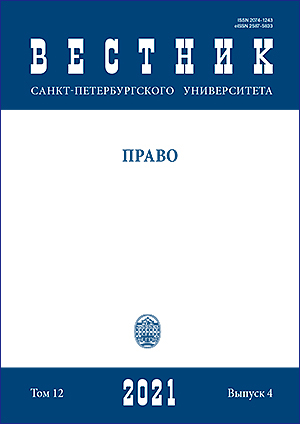Organizational and legal mechanisms for increasing the efficiency of public spending on education and science
DOI:
https://doi.org/10.21638/spbu14.2021.406Abstract
In the article, the concept of the unity of the system of state educational and scientific organizations of the Russian Federation is developed. Currently at the federal level, strategic planning programs (for example, the project “Priority-2030”) have been approved. The projects are aimed at the development of domestic systems of science and education, in particular, at increasing their competitiveness in the international arena. Specific measures in relation to state organizations play a special role in this issue, not least in relation to the use of state property assigned to the relevant organizations. The authors substantiate the possibility of a practical application of individual mechanisms that can significantly increase the efficiency of the use of public resources in the fields of science and education, both through administrative measures and through the development of horizontal ties between the state organizations themselves. Distinctly, the authors touch upon the provisions of the Federal Law of December 22, 2020 No. 456-FZ “On Amending Parts Two and Four of the Civil Code of the Russian Federation and invalidating legislative acts (certain provisions of legislative acts) of the Russian Federation”, which make changes to the procedure for transferring rights to use intellectual property from developers to a public entity. The authors emphasize that this reform is controversial and does not sufficiently reflect the interests of a public entity when creating an intellectual product at the expense of budgetary funds, and they also propose separate measures to address the problem.
Keywords:
the right to education, higher education system of the Russian Federation, science and education, efficiency of budget expenditures, resource provision, he results of intellectual activity, state universities of Russia, digital educational environment, academic ratings
Downloads
References
Downloads
Published
How to Cite
Issue
Section
License
Articles of "Vestnik of Saint Petersburg University. Law" are open access distributed under the terms of the License Agreement with Saint Petersburg State University, which permits to the authors unrestricted distribution and self-archiving free of charge.






